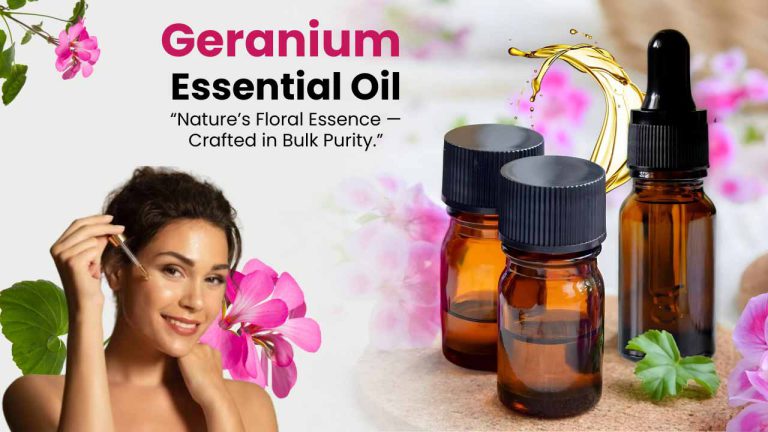
The Citrus bergamia tree, a cross between a bitter orange and a lemon, yields bergamot essential oil in bulk.
Growers first cultivated the tree in Southeast Asia, but later transported it to the Mediterranean region, particularly southern Italy. The name ‘bergamot’ comes from the Italian city of Bergamo, where merchants initially sold the oil, and perfumers widely used it in cosmetics and fragrances during the Renaissance.
In the past, people primarily used the oil for therapeutic purposes because of its antibacterial and calming properties.
Where it is produced: Bergamot essential oil in bulk
Farmers in southern Italy, mainly in the Calabria area, produce most of the bergamot essential oil. This region’s mild temperature and unique soil composition provide the Citrus bergamia tree with the ideal circumstances for growth. The special mix of sea breezes and hilly terrain affects the distinctive flavor and quality of the oil by creating the right balance of humidity, rainfall, and sunlight. Although farmers grow bergamot trees and produce essential oil in other countries like the Ivory Coast, Argentina, and Brazil, Italian bergamot oil remains the most well-known and in demand because it has an excellent aroma and healing qualities.
Process of extracting the oil
People use the terms “expression” or “cold pressing” to describe how they obtain bergamot essential oil. The bergamot fruit, which is about the size of an orange and becomes yellow when mature, has to have its oil properly extracted from the peel before use. The oil glands lie in the fruit’s outer layer, and to extract the essential oil, one must perform the following procedures:
Harvesting: Harvesters pick mature bergamot fruits by hand because the fruits are fragile and require gentle handling to protect the oil glands.
Washing: Workers properly rinse away any dirt or residue from the picked fruits.
Peeling: Workers properly rinse away any dirt or residue from the picked fruits.
Cold Pressing: Next, workers apply mechanical pressure to the peel using a cold press or expression machine. By using a mild procedure, you may protect the essential oil’s original qualities by preventing overheating or other modifications.
Separation: The leftover peel and other plant parts are removed, leaving just the oil that has been extracted.
Quality Control: It goes through a thorough quality control process to verify the oil’s potency and purity.
Different varieties of bergamot oil in bulk
The origin, growth circumstances, and extraction method all have a role in the diversity of bergamot essential oil variations, each of which has distinctive properties. The most significant types are as follows:
Aromatherapists and perfumers often use Italian bergamot oil for its well-balanced, vibrant citrus scent. This makes it the most sought-after variety. In contrast, fragrance manufacturers prefer Ivory Coast bergamot oil for its sweeter, more floral aroma.
Bergamot Essential Oil in bulk Quality Variables
Factors that can affect its quality.
Growing Conditions: Climate, soil, and altitude may drastically alter oil scent and potency.
Harvesting: The finest oil is produced using ripe, healthy fruits and proper harvesting practices.
.jpg)
Extraction Method: Manufacturers choose cold pressing because it preserves the oil’s original qualities, unlike other heat extraction techniques that can alter its scent and medicinal components.
Storage: Keeping oil in dark, sealed containers from the sun and heat can help it keep its quality over time.
Adulteration: To assure authenticity, buyers should choose reputable providers, since synthetic or inferior oils can harm the purity and potency of bergamot oil through adulteration.
Finally, bergamot essential oil wholesalers have a lengthy history dating back to antiquity. Farmers grow premium bergamot fruits in Italian soil and a unique climate. These conditions are ideal, so most production is concentrated in this region. They carefully extract the oil using cold pressing to retain its medicinal properties and distinctive scent. Elements, including cultivation circumstances, extraction techniques, and storage procedures, govern the quality of the oil. There are several types, each with its distinct scent signature. People still value bergamot essential oil as a natural remedy. They use it for its pleasant aroma or medicinal properties.



